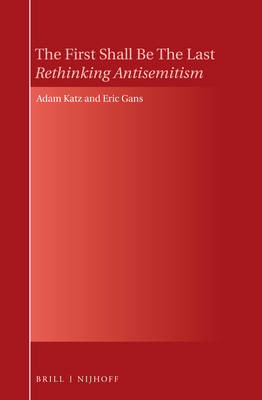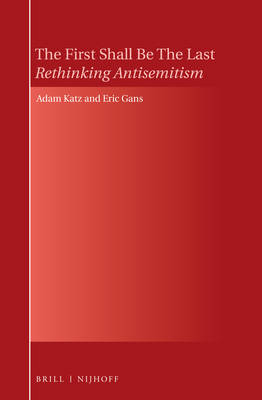
- Afhalen na 1 uur in een winkel met voorraad
- Gratis thuislevering in België vanaf € 30
- Ruim aanbod met 7 miljoen producten
- Afhalen na 1 uur in een winkel met voorraad
- Gratis thuislevering in België vanaf € 30
- Ruim aanbod met 7 miljoen producten
Zoeken
Omschrijving
At a time when there is an evident socio-economic, political and cultural structural shift in the processes and practices associated with contemporary manifestations of antisemitism globally, it is important to explore its origins and examine whether the circumstances of its genesis can shed light on its longevity and adaptability. Few scholars are more qualified to undertake such a task than the authors of this volume, who have done so much to develop and advance the discipline of generative anthropology. In this study their groundbreaking hypothesis on the singular event that gave rise to human language and by extension human culture finds a fascinating parallel in the Jewish people's discovery/invention of monotheism, giving rise to historical resentments and hostility. The volume will be of interest to scholars working in the field of anti-discrimination and antisemtitism, as well as human rights scholars and cultural historians in general.
Specificaties
Betrokkenen
- Auteur(s):
- Uitgeverij:
Inhoud
- Aantal bladzijden:
- 230
- Taal:
- Engels
Eigenschappen
- Productcode (EAN):
- 9789004298361
- Verschijningsdatum:
- 14/01/2015
- Uitvoering:
- Hardcover
- Formaat:
- Genaaid
- Afmetingen:
- 157 mm x 239 mm
- Gewicht:
- 453 g

Alleen bij Standaard Boekhandel
+ 372 punten op je klantenkaart van Standaard Boekhandel
Beoordelingen
We publiceren alleen reviews die voldoen aan de voorwaarden voor reviews. Bekijk onze voorwaarden voor reviews.








